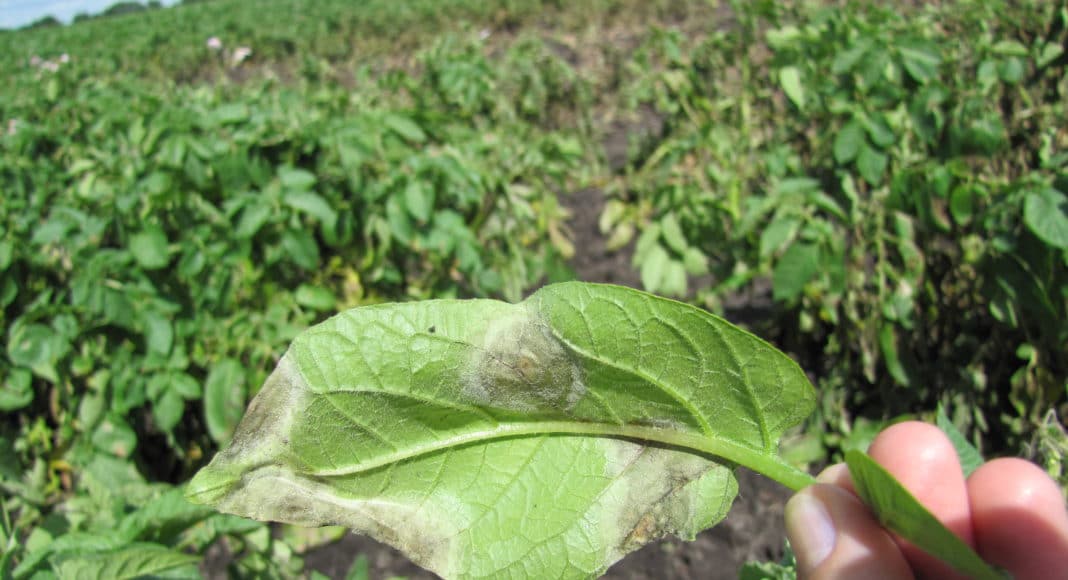A grape researcher at Cornell University found by using proximal and remote spectroscopy she was able to pre-symptomatically detect late blight infection in potatoes, a news release from the university says on June 9.
Kaitlin Gold, an assistant professor in the plant pathology and plant-microbe biology section at the School of Integrative Plant Science at Cornell University, and her colleagues were able to use hyperspectral sensors to measure light reflectance in the visible to shortwave infrared range of the electromagnetic spectrum. Gold and her colleagues at the University of Wisconsin-Madison recently published the research which showed how they used contact spectroscopy to non-destructively sense how plant pathogens differentially damage, impair, and alter plant traits during the course of infection.
Late blight pathotypes are usually defined as clonal lineages and asexual descendants of a single genotype. In their latest research, they paired machine learning-based hyperspectral analysis with a molecular assay to better understand what pathogen processes might be the root cause of their ability to discriminate between two late blight clonal lineages, the release says.
“Surprisingly, we find that our ability to differentiate between them was more accurate at the earliest stages of infection: before symptoms appeared rather than after,” Gold says in the release. “This is the first time hyperspectral sensors have been used to distinguish between pathotypes and is an important step forward for the discipline of plant disease sensing.”
This research will be able to create a roadmap for the future use of hyperspectral sensors as automated, non-destructive, and scalable tools to identify pathotype in real time, in both late blight and other pathosystems.
“This work opens a door to a world where hyperspectral sensors could one day be used to passively detect different pathotypes in the field at scale,” Gold says.











